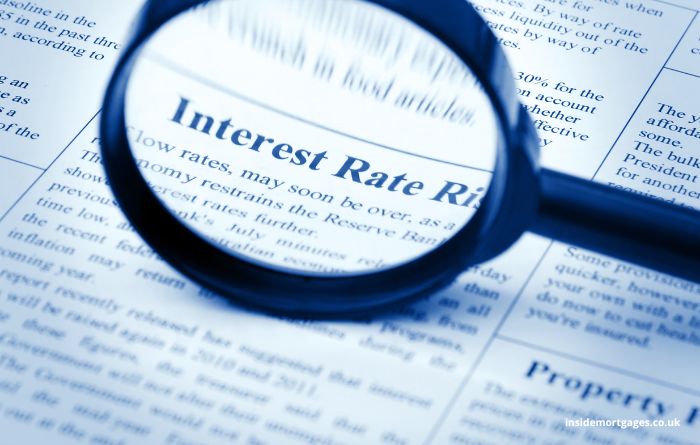What Is A Repayment Mortgage And When Should You Get One?
Looking for a mortgage and wondering what repayment mortgage is? A repayment mortgage is a type of home loan where the borrower makes regular payments that gradually pay off both the interest and principal balance over a set period of time, usually 25 to 30 years. Each payment made reduces the amount owed and the interest charged on the remaining balance. By the end of the loan term, the borrower has paid off the entire loan, including all interest charges, and owns the property outright.
Repayment mortgages are also known as capital and interest mortgages, and are the most common type of mortgage in the UK. They are generally considered a more secure option for borrowers because the payment schedule is structured to ensure that the loan will be fully repaid by the end of the term, as long as payments are made on time and in full.
How Does A Repayment Mortgage Work?

When most people think of a mortgage, it’s a repayment mortgage they comes to mind, but they may not know that this is it’s official name. A repayment mortgage is a type of home loan where the borrower makes regular payments to the lender over a set period of time, usually 25 to 30 years. The monthly payment includes both the interest charged on the outstanding balance and a portion of the principal balance, which gradually reduces the amount owed over time.
Here’s how a repayment mortgage works in more detail:
- Borrower applies for a loan: The borrower applies for a mortgage loan from a lender, who assesses their creditworthiness and the value of the property they wish to purchase.
- Loan is approved: If the borrower meets the lender’s criteria, the loan is approved, and the lender agrees to lend the money for the property purchase.
- Repayment schedule is set: The lender sets a repayment schedule that specifies the monthly payment amount, the interest rate charged on the loan, and the length of the loan term.
- Monthly payments are made: The borrower makes monthly payments to the lender, which are typically fixed for the duration of the loan term. Each payment includes both interest and a portion of the principal balance.
- Interest is calculated: The interest charged on the outstanding balance is calculated at the end of each month, based on the interest rate agreed upon between the borrower and lender.
- Principal balance is reduced: The portion of each payment that goes towards the principal balance gradually reduces the amount owed over time.
- Loan is fully repaid: By the end of the loan term, assuming all payments have been made on time and in full, the loan is fully repaid, and the borrower owns the property outright.
Repayment mortgages are a popular option for borrowers because they provide a structured and predictable payment schedule, making it easier to budget and plan for the future. They also provide security in knowing that the loan will be fully repaid at the end of the term, assuming all payments are made as scheduled.
Advantages & Disadvantages Of Repayment Mortgages
Repayment mortgages have several advantages and disadvantages, which borrowers should consider when deciding whether they are the right option for their needs.
Advantages of Repayment Mortgages:
- Structured repayment: With a repayment mortgage, the borrower has a structured repayment schedule that ensures the loan will be fully repaid by the end of the term, as long as payments are made as scheduled.
- Predictable payments: The monthly payments on a repayment mortgage are fixed for the duration of the loan term, which makes it easier for borrowers to budget and plan for the future.
- Equity ownership: With each payment, the borrower is gradually paying down the principal balance of the loan and building equity in the property they own.
- Interest savings: Over time, the amount of interest paid on a repayment mortgage decreases as the principal balance is paid down.
Disadvantages of Repayment Mortgages:
- Higher monthly payments: Monthly payments on a repayment mortgage are typically higher than those on an interest-only mortgage, which can be a disadvantage for borrowers with limited cash flow.
- Opportunity cost: Because the borrower is paying down the principal balance of the loan over time, they may have less cash available for other investments or expenses.
- Early repayment penalties: Some lenders charge penalties for borrowers who repay their mortgage early or make additional payments, which can be a disadvantage for those who want to pay off their loan ahead of schedule.
- Higher total interest paid: While the amount of interest paid on a repayment mortgage decreases over time, the total amount of interest paid over the life of the loan is usually higher than that of an interest-only mortgage.
In summary, repayment mortgages offer a structured and predictable repayment schedule that helps borrowers build equity in their homes over time. However, they may also have higher monthly payments, early repayment penalties, and a higher total interest paid than other types of mortgages.
Who Should Get A Repayment Mortgage?
Repayment mortgages are a good option for borrowers who want to own their home outright at the end of the mortgage term and are comfortable with making higher monthly payments in exchange for the benefits of a structured repayment schedule and equity ownership. Repayment mortgages are also a good option for borrowers who are risk-averse and prefer the certainty of knowing that their mortgage will be fully paid off by the end of the term.
Here are some specific groups of borrowers who may benefit from a repayment mortgage:
First-time homebuyers:
Repayment mortgages are a good option for first-time homebuyers who want to own their home outright and build equity over time.
Borrowers with stable income:
Because repayment mortgages have higher monthly payments, they are best suited for borrowers with stable income and a predictable cash flow.
Long-term homeowners:
Borrowers who plan to own their home for the long term may benefit from a repayment mortgage, as it allows them to build equity in the property over time.
Borrowers who want to avoid risk:
Repayment mortgages are a good option for borrowers who want to avoid the risk of an interest-only mortgage, where the principal balance is not paid down over time and there is no guarantee of being able to repay the loan at the end of the term.
Overall, repayment mortgages are a good option for borrowers who prioritize the long-term benefits of owning their home outright and are willing to make higher monthly payments in exchange for the benefits of a structured repayment schedule and equity ownership.
What Alternatives To Repayment Mortgages Are There?
There are several alternatives to repayment mortgages that borrowers may consider, depending on their financial goals and circumstances. Here are some examples:
- Interest-only mortgages: With an interest-only mortgage, the borrower only pays the interest charged on the outstanding balance each month. This can result in lower monthly payments, but the borrower will still owe the full principal balance at the end of the term.
- Offset mortgages: An offset mortgage links the borrower’s mortgage and savings accounts, with the balance in the savings account offsetting the outstanding balance on the mortgage. This can result in lower interest charges and can help borrowers pay off their mortgage faster.
- Fixed-rate mortgages: A fixed-rate mortgage offers a fixed interest rate for a set period of time, typically 2 to 10 years. This provides borrowers with certainty and predictability in their monthly payments, regardless of changes in interest rates.
- Adjustable-rate mortgages: An adjustable-rate mortgage offers an interest rate that can change over time, based on market conditions. This can result in lower initial interest rates, but can also lead to higher payments if interest rates rise.
- Buy-to-let mortgages: Buy-to-let mortgages are designed for borrowers who want to purchase a property with the intention of renting it out. These mortgages often have higher interest rates and require a larger deposit than traditional mortgages.
- Equity release: Equity release allows homeowners to access the equity in their home without selling it. This can be done through a variety of methods, such as a lifetime mortgage or home reversion plan.
How Much Interest Will I Pay On Repayment Mortgage?

The amount of interest you will pay on a repayment mortgage depends on several factors, including the amount of the loan, the interest rate, and the length of the mortgage term.
When you make a payment on a repayment mortgage, a portion of the payment goes towards paying the interest charged on the outstanding balance, and the remainder goes towards reducing the principal balance. Over time, as the principal balance decreases, the amount of interest charged also decreases, resulting in a lower overall amount of interest paid.
To calculate the total amount of interest you will pay on a repayment mortgage, you can use an online mortgage calculator or speak with your lender. You will typically be provided with an amortization schedule, which outlines the breakdown of each payment over the life of the loan, including the amount of interest and principal paid each month.
It is important to note that the interest rate you are charged can vary depending on market conditions and the type of mortgage you have. For example, a fixed rate mortgage will mean that you are charged the same interest rate for the life of the loan, while an adjustable-rate mortgage may have a lower initial interest rate that can change over time. A tracker mortgage means that you will be charged the same rate as a reference interest rate, such as the Bank of England base rate.
Which ever type of mortgage you take out, if you choose to make extra payments towards your mortgage, you can reduce the overall amount of interest you will pay and potentially pay off your mortgage faster.
Where Can I Find A Mortgage Calculator?
A mortgage calculator is a useful tool for estimating the costs associated with a mortgage. Most online mortgage calculators allow you to enter your desired loan amount, interest rate, and repayment schedule to calculate an estimated monthly payment as well as the total interest you will pay over the life of the loan. Some calculators also provide additional information such as amortization schedules and the ability to compare different payment scenarios.
You can find a variety of free online mortgage calculators from financial institutions, government agencies, and other third-party websites including this one. You should also speak with your lender for specific information about your loan and to get personalized advice on the best type of mortgage for you.
Can I Change From Repayment To Interest-Only?
It may be possible to switch from a repayment mortgage to an interest-only mortgage, but it is important to consider the potential risks and implications of doing so. Before considering a switch to an interest-only mortgage, you should speak with your lender or a financial advisor to discuss the feasibility and suitability of the change.
Lenders may have specific criteria that borrowers must meet in order to switch to an interest-only mortgage, such as a minimum amount of equity in the property or a strong credit history. It is important to note that switching to an interest-only mortgage will result in lower monthly payments, but the borrower will still owe the full principal balance at the end of the term.
This can be a risky strategy, as there is no guarantee that the borrower will be able to repay the loan at the end of the term. Additionally, switching to an interest-only mortgage may result in higher interest charges over the life of the loan
Summary
A repayment mortgage is a type of mortgage where borrowers make regular payments that cover both the interest on the loan and the principal balance, with the goal of fully paying off the loan at the end of the mortgage term. Repayment mortgages offer a structured and predictable repayment schedule, equity ownership, and interest savings over time.
They are a good option for borrowers who want to own their home outright and are comfortable with making higher monthly payments. Other alternatives to repayment mortgages include interest-only mortgages, offset mortgages, fixed-rate mortgages, adjustable-rate mortgages, buy-to-let mortgages, and equity release. Ultimately, borrowers should consider their financial goals and circumstances when choosing a mortgage product to decide on the right product for them.

